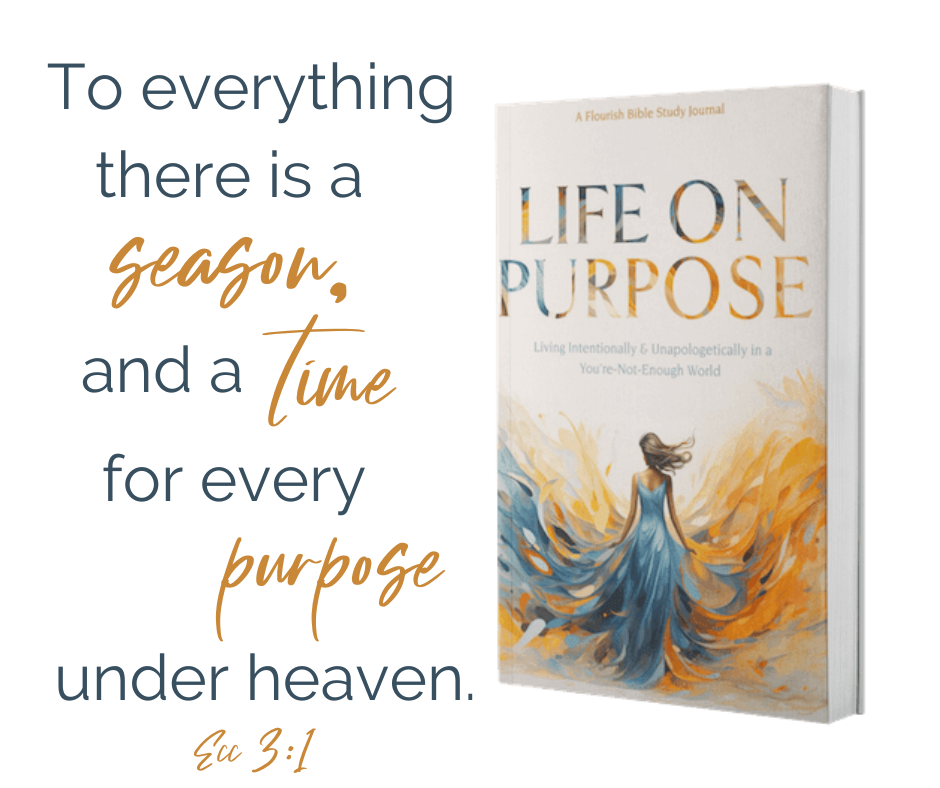As a native Floridian, moving to the Midwest was nothing short of culture shock. In south Florida, our seasons mainly consist of a hot one and a warm one. I was thrilled to leave behind the humidity and palm trees for my first experience with four seasons. For many years, I had pined for fall foliage, a true winter coat hanging in the closet, and a pumpkin spiced latte on a cold day.
Once we arrived in Kentucky, the seasons didn’t disappoint. Mild summers, leaves changing colors, and my daughter playing in the snow all seemed magical. We were filled with wonder at the varied expressions of nature found farther north of the equator. As winter melted away and our first springtime came to life, I came to view the seasons in an entirely fresh way.
It was my first Mother’s Day in the Midwest. The day was exquisite with sunny blue skies, mild temperatures, and a gentle breeze—a light sweater kind of day. Since I had never planted a veggie garden in Florida, I was itching to experience the joys of growing my own food. With the threat of a late frost safely behind us, we headed to our local plant nursery. It was bustling with activity. We weren’t the only ones there shopping for seedlings and soil on this glorious spring day.
That first garden flourished before my eyes. Every seedling carefully planted in its nutrient-rich potting soil produced an abundance of fruit. Before I knew it, my bare garden plot was overflowing with tomatoes, onions, carrots, peppers, and more.
For the first time, I experienced the full expression of nature the way our Creator designed it—the natural seasons harmoniously working within His creation, all in His perfect timing. Spring and summer allow for just the right temperatures so that seeds and seedlings can flourish.
Have you noticed that nature doesn’t fight the season it’s in? Each day, the sun rises, the rivers flow, and the leaves fall at just the right time. Just like the physical seasons of the year, we too experience the rhythm of the seasons in our lives.
Solomon has lived many seasons by the time he sits down to pen the intriguing book of Ecclesiastes. I imagine his yearning to convey his message with truth and grace, yet also with an urgency of what is truly important. He references nature often in this book, observing how nature understands its purpose, season, and calling. Nature doesn’t fight or pine for another season or a different assignment.
Solomon eloquently reveals the frailty of the human condition. We don’t always understand our purpose. Our spirits are often dissatisfied and discontented with the current season of our lives. When we pine for the future, we experience a disconnect between mind and body. Our bodies are going through the motions of life in one season while our minds and hearts are living in another.
I’ve caught myself many times living in a different season, believing the lie that if or when “this” happens, then I’ll be happier, richer, or more accomplished. Can you relate? Do you find yourself living in the future instead of embracing the present?
One of the most quoted Scriptures in Ecclesiastes is found at the beginning of chapter three: “To everything there is a season, and a time for every purpose under heaven” (Ecclesiastes 3:1 NIV).
Only recently have I begun to grasp a fuller meaning of this Scripture. We serve a God of order and purpose. This same God knows each hair on our head, sees when a sparrow falls, and counts the grains of sand in the sea. Not a single detail of our lives or His creation is left to chance. This is great news, but oh, how often we fight the shackles of dissatisfaction and discontent.
Solomon refers to this dissatisfaction and discontentment in spirit as a “chasing after the wind.” When we think about it, we know we can’t chase the wind. We’ll never catch it. It’s a fruitless endeavor. Though Solomon truly “has it all” and is considered the wisest man to ever live, he realizes that we are driven to strive for more, but we will never quite catch what we seek. Whether it’s money, accomplishments, material possessions, or even wisdom and knowledge, it’s useless to chase it down. All becomes meaningless. Everything leaves us empty.
You may read through the book of Ecclesiastes and find it rather confusing or even downright depressing. Solomon wrote in a matter-of-fact way. I sense he desired to get his urgent message across and didn’t have time to sugarcoat the reality. Yet after some time meditating on his words, I find myself encouraged. I see what he desired to communicate.
We serve the God who created the expansive uniqueness of the galaxies and the intricacies of the human body. A purposeful Creator set all things in motion. It is the nature and character of God to design life with intentionality and for a unique purpose.
This perspective allows us to surrender to the present and discover the unique purpose for our lives in each season.
Our fallen nature will never be satisfied with that which we chase after. So let us be those who embrace the season we’re in. I personally acknowledge that some seasons are uncomfortable, painful, tedious, and even tragic. We’re not promised to experience life without the discomforts of a fallen world. Yet when we embrace all that God created, we discover the heart of a purposeful Creator and find freedom in the plans He has for our lives.
That first spring garden taught me a lot about life. The processes that God created for nature often mimic the seasons of our own lives. We are similar to the seeds that must go through a dark, difficult season to break forth into the light, only to be fed and nourished by that light to bear good fruit. It is often the seasons of pain, discontent, and dissatisfaction that are meant to encourage us to reach toward the light of His Word and His Presence.


